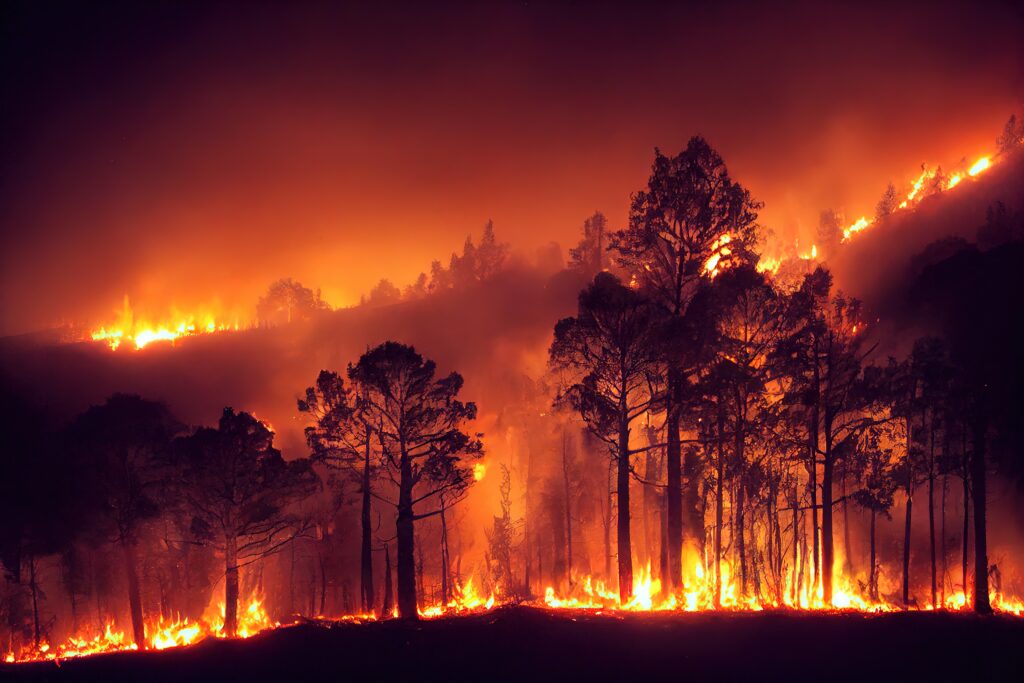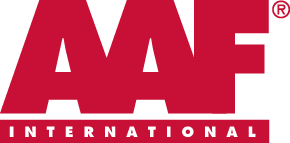Dangers of short-term exposure to wildfire smoke

Nearly the entire U.S. is threatened by wildfires, directly or indirectly. As scary as it is to be in the path of a raging fire, smoke plumes release gases and particulates that carry hundreds and even thousands of miles on the wind. The World Health Organization (WHO) considers the amounts of fine particulate matter released by these fires hazardous. At these concentrations, the particulates pose significant risks to the lungs, the brain’s ability to function normally, and the nervous system. The Environmental Protection Agency (EPA) developed its air quality index to provide guidance to help people, particularly those who are unusually sensitive, take proper precautions. The air quality index (AQI) takes into account particulate matter and gases such as ozone. Wildfires typically cause outdoor air quality levels that are unhealthy or worse on the AQI scale. Indoor air quality (IAQ) can be even worse than outdoor air without the right filters. How Air Filtration Can Help If you are located near a wildfire: If your area is prone to wildfires: The Case for MERV 13 The fine particulates from wildfire smoke of greatest concern are those in the PM2.5 range. Particles in this range are 2.5 microns in diameter or smaller, roughly 30X smaller than the width of a human hair. Particles of this size stay suspended in air for long periods of time, can travel long distances, and can penetrate deep into the lungs, causing serious health problems. Nearly the entire U.S. is threatened by wildfires, directly or indirectly. As scary as it is to be in the path of a raging fire, smoke plumes release gases and particulates that carry hundreds and even thousands of miles on the wind. The World Health Organization (WHO) considers the amounts of fine particulate matter released by these fires hazardous. At these concentrations, the particulates pose significant risks to the lungs, the brain’s ability to function normally, and the nervous system. The Environmental Protection Agency (EPA) developed its air quality index to provide guidance to help people, particularly those who are unusually sensitive, take proper precautions. The air quality index (AQI) considers particulate matter and gases such as ozone. Wildfires typically cause outdoor air quality levels that are unhealthy or worse on the AQI scale. Indoor air quality (IAQ) can be even worse than outdoor air without the right filters. How Air Filtration Can Help If you are located near a wildfire:
What You Need to Know about Indoor Air Quality (IAQ)

Pollution Levels Indoors Can Be 5 Times Higher Than Outdoors Indoor Air Quality (IAQ) is a term that refers to the air quality in your building, breathed in every day by the building’s occupants. The pollution levels in this indoor air can be up to 5 times higher than outdoor levels (in many cases up to 100 times higher), and people spend more than 90% of their time indoors! Additionally, poor IAQ ranks as one of the top five environmental risks to public health, but is often overlooked by key decision makers. Extensive Studies Show: 34% of American workers feel that poor IAQ had caused them to miss work. For every 1000 workers, poor IAQ results in 600 sick days per year. Up to 65% of asthma cases in school-aged children could be prevented with proper IAQ. Three to four million hospital-acquired infections occur annually, with up to 80,000 fatalities. Up to 1/3rd of hospital-acquired infections involve airborne transmission. There are 175,268 pages on IAQ in the U.S. Code of Federal Regulations. 56% of commercial maintenance teams admitted that their IAQ maintenance is not carried out per IAQ guidelines. Lack of proper air filtration is the #1 cause of poor IAQ. The Air Inside Your Building Can Contain: Have Concerns About Your Facility’s Air Quality? Here is How We Can Help: The first step in AAF’s collaborative and consultative approach is to conduct a thorough air filtration audit, where we analyze your current state. We can then give you detailed benchmark data based upon the audit results, as well as a life cycle cost report and a standardized list of filters. As the leading provider of air filtration solutions, we can help you create superior air quality in your building and better manage your HVAC system. Here are a few benefits you will get from an air filter audit:
